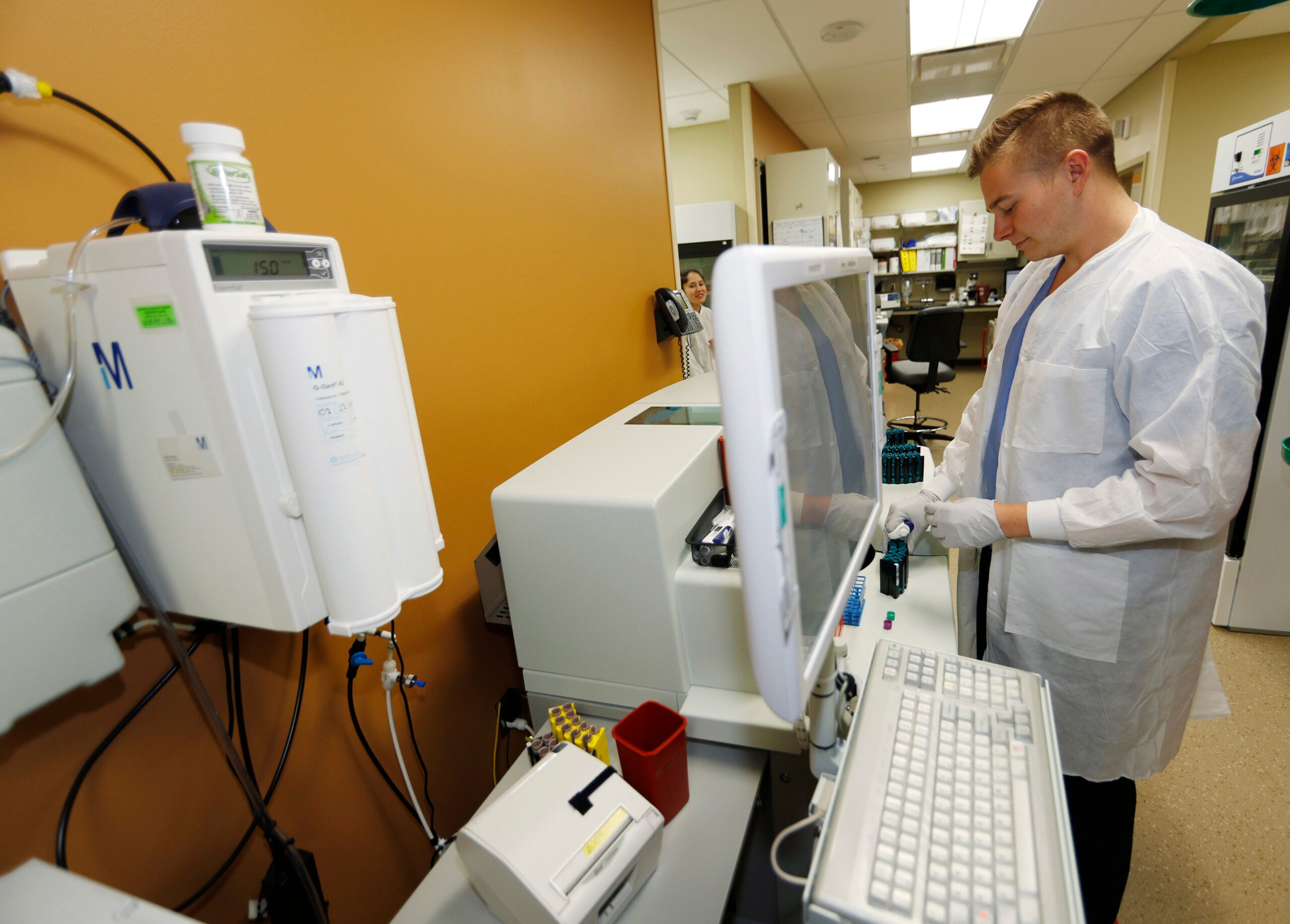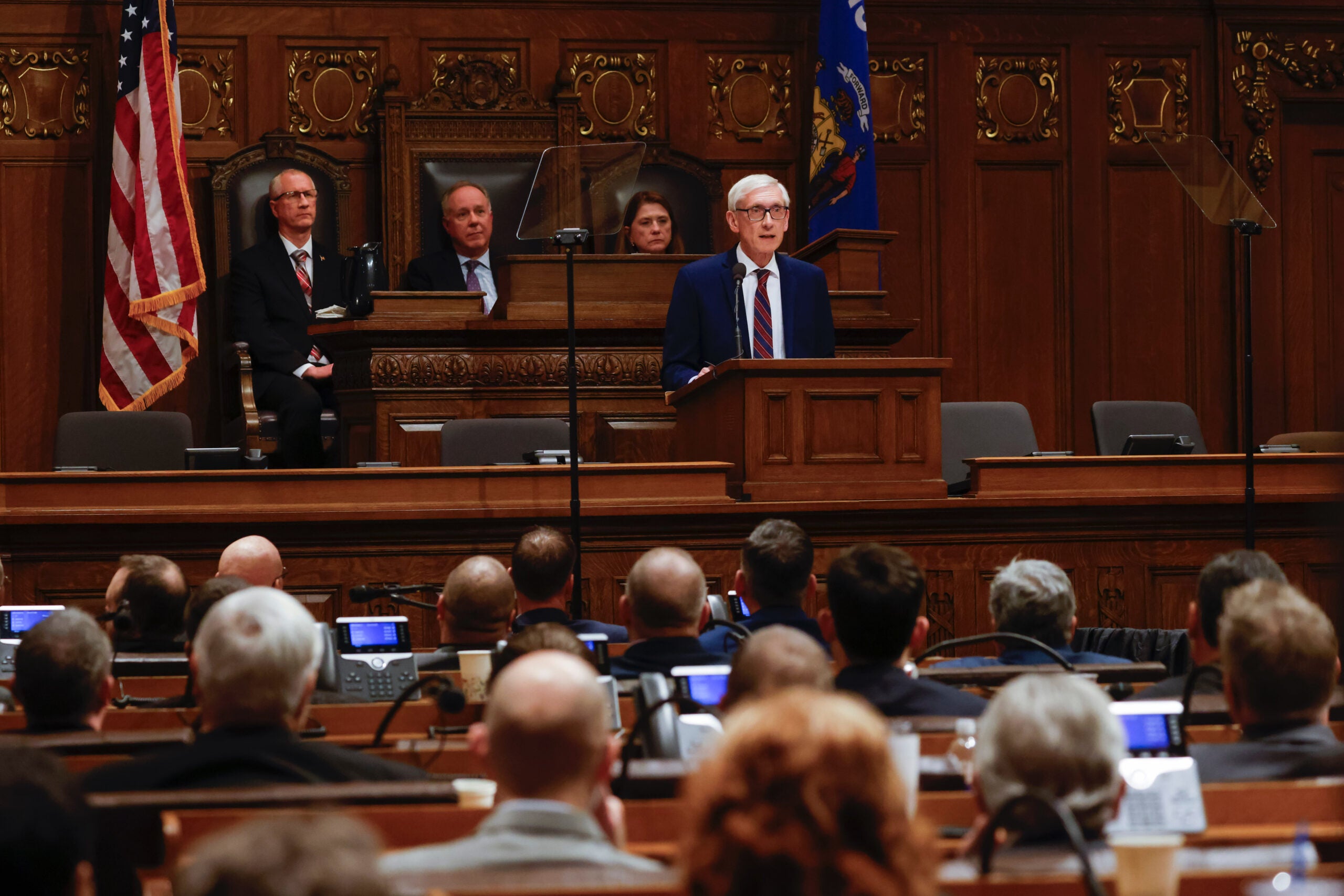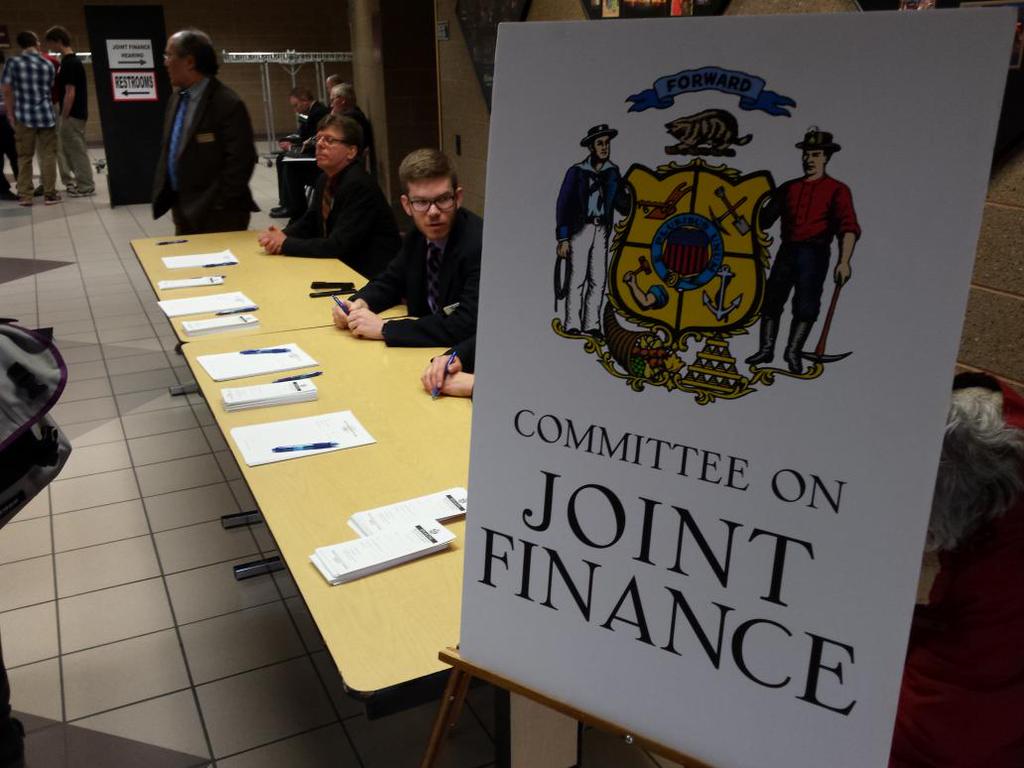Republicans in the Wisconsin Senate voted Wednesday night to pass their version of the next state budget, one that would devote a large share of Wisconsin’s historic surplus to income tax cuts, including for the wealthy.
The measure passed on a 20-13 vote, with two Republicans joining all Democrats in voting against it. The Assembly will likely pass the bill Thursday, which would send it to Democratic Gov. Tony Evers’ desk.
While there are some similarities between the budget Republicans passed and the version Evers introduced in February, the two plans would not easily be mistaken for one another.
Stay informed on the latest news
Sign up for WPR’s email newsletter.
Evers, who framed the debate as a once-in-a-lifetime opportunity to make investments in Wisconsin, proposed spending more than $1 billion combined on expanding broadband, funding a pandemic-era child care subsidy and creating a new paid family leave program. Republicans deleted all three proposals, zeroing them out.
Hundreds of other initiatives proposed by Evers were rejected by Republicans on Day One of their budget process, including an expansion of Medicaid and the legalization of cannabis.
Republicans also rejected the tax cut proposed by Evers in his budget, one focused on people who earn up to $100,000 and couples who earn up to $150,000.
In its place, the GOP budget would cut taxes across all income brackets, including for the state’s wealthiest residents.
“This is moving Wisconsin to a flat tax,” said Senate Majority Leader Devin LeMahieu, R-Oostburg, who has been the Legislature’s most outspoken advocate for eliminating Wisconsin’s progressive income tax in favor of a single rate for all taxpayers. Under a progressive income tax, those who earn more pay more in taxes on their additional earnings. Under a flat tax, everyone pays the same rate, which results in a larger tax cut for wealthier residents.
Democrats described the GOP budget in markedly different terms, telling Republicans they had squandered the opportunity to fund programs voters support.
“You’re inflicting generational harm on our state by prioritizing these tax breaks for the wealthy,” said Senate Minority Leader Melissa Agard, D-Madison.
The two-year budget proposed by Evers called for $49 billion in spending from Wisconsin’s general fund, which is effectively state government’s checkbook. The budget passed by Republicans would spend about $44 billion.
That would still amount to about a 10 percent increase in state spending, and would fund initiatives like a $125 million grant program to fight PFAS; $525 million for a package of housing initiatives; raises for state employees including corrections officers; and funding for the shared revenue deals struck earlier this month by Republicans and Evers.
The GOP budget would also spend roughly $2.4 billion on Wisconsin’s capital budget for building projects, paying for roughly half of it in cash from Wisconsin’s surplus and spending another $400 million to pay off old state debt.
“We used the $7 billion surplus wisely,” said Sen. Joan Ballweg, R-Markesan.
The GOP budget would spend roughly $1 billion on public schools between state and local funding, a number smaller than Evers initially asked for but one negotiated weeks ago between the governor and Republicans.
But scores of other Democratic priorities were rejected in the budget that passed the Senate. On Wednesday, Republicans voted against several Democratic amendments that would have restored pieces of Evers’ budget, including one that would have directed $340 million to the Child Care Counts program.
Funding for that program is expected to completely disappear by February, which Democratic Sen. Kelda Roys of Madison said will force some child care providers to raise their rates or close their doors, driving up child care costs for parents. She said that will hurt them more than any tax cut would help.
“What that means is their household income is about to drop precipitously,” Roys said.
Other Democratic amendments would have restored funding at the levels Evers wanted for Wisconsin’s Office of School Safety and brought back the governor’s plan to require universal background check for firearm purchases.
Sen. LaTonya Johnson, D-Milwaukee, criticized Republicans for supporting measures aimed at preventing the spread of crime outside Milwaukee while rejecting efforts she said would curb gun violence within the city, using profanity in her speech on the Senate floor.
“F— the suburbs, because they don’t know a goddamn thing about how life is in the city,” Johnson said.
Other Democratic amendments that failed would have restored the governor’s plans to expand Medicaid and fund a new engineering school at the University of Wisconsin-Madison.
Republican Sens. Rob Hutton of Brookfield and Steve Nass of Whitewater joined all Democrats in voting no on the budget. Nass issued a written statement saying the plan approved by Republicans spent too much, noting that it would leave the state with a structural deficit two years from now. He also complained that senators weren’t given a plain-language analysis of the budget until Tuesday.
“The (Legislative Fiscal Bureau) summary is more than 600 pages,” Nass said. “I doubt very many senators actually know the broader details of what they are voting on.”
Assuming the Assembly passes the Senate’s version of the budget without changes, Republicans would send the plan to Evers on the final day of the state’s current two-year budget.
Evers has not ruled out rejecting the bill altogether, but during his first term he instead used his powerful partial veto power to reshape the budgets passed by Republicans so they were more to his liking. He could choose to do the same to portions of this budget.
Wisconsin Public Radio, © Copyright 2025, Board of Regents of the University of Wisconsin System and Wisconsin Educational Communications Board.





